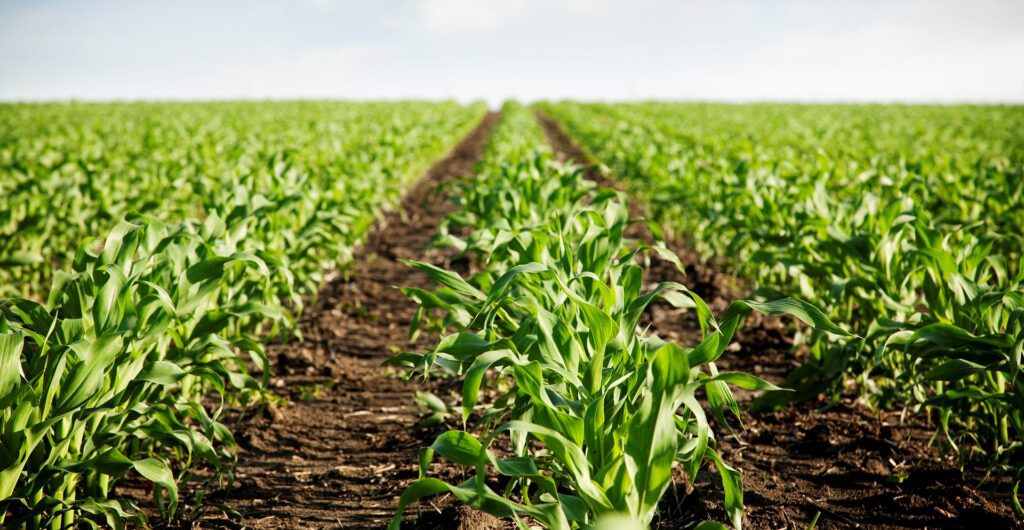Table of Contents
Organic farming, hailed for its environmental benefits and commitment to sustainability, stands in contrast to conventional agricultural practices. It emphasizes the use of natural processes and materials, avoiding synthetic chemicals and fertilizers. While organic farming offers numerous advantages, it is not without its challenges. This blog delves into the multifaceted obstacles faced by organic farmers, exploring environmental, economic, technical, regulatory, and labor-related issues, and concludes with insights and potential solutions. Challenges in Organic Farming

Introduction
Organic farming is more than just a trend; it represents a fundamental shift in agricultural practices. By focusing on sustainability, biodiversity, and ecological balance, organic farming seeks to produce food in harmony with nature. As consumers increasingly demand organic products, understanding the challenges faced by organic farmers is crucial for appreciating the complexity and dedication involved in this farming approach.
Environmental Challenges
Soil Health and Fertility-Soil health is the cornerstone of organic farming. Unlike conventional farming, which relies on synthetic fertilizers to replenish soil nutrients, organic farming uses natural amendments like compost, manure, and green manure. While these methods are effective, they come with their own set of challenges. Organic matter decomposition can be slower than synthetic fertilizers’ nutrient release, leading to potential nutrient deficiencies. Challenges in Organic Farming
Maintaining soil fertility also requires careful management. Organic farmers must employ crop rotation, cover cropping, and organic composting to enhance soil structure and nutrient content. However, achieving optimal soil health requires continuous monitoring and adjustment, which can be labor-intensive and complex.
Pest and Disease Management-Organic farming limits the use of synthetic pesticides, relying instead on biological control methods, such as introducing beneficial insects or using organic-approved pesticides. While these methods can be effective, they often require a more nuanced approach and can be less predictable than conventional chemical solutions. Challenges in Organic Farming
Organic farmers must be vigilant in monitoring crops for pests and diseases and implementing integrated pest management (IPM) strategies. This might include physical barriers, crop rotation, or biological controls. The effectiveness of these methods can vary based on environmental conditions and pest pressures, making pest management a challenging aspect of organic farming.
Water Management-Water management is another critical concern in organic farming. Organic farmers must ensure that their practices do not lead to water depletion or contamination. Unlike conventional farming, which may use synthetic chemicals that can be harmful to water sources, organic farming relies on natural practices to maintain water quality.
Efficient irrigation practices, such as drip irrigation and rainwater harvesting, are often employed to minimize water use. However, ensuring consistent water availability and quality can be challenging, especially in regions prone to drought or water scarcity. Challenges in Organic Farming


Economic Challenges
Higher Costs of Organic Inputs-The transition to organic farming often involves higher initial costs. Organic seeds, compost, and other inputs can be more expensive than their conventional counterparts. Additionally, organic farming practices typically require more labor and management, further increasing costs.
Despite the higher expenses, many organic farmers believe that the benefits, including premium prices for organic products, justify the investment. However, the economic viability of organic farming can be a significant barrier, especially for new or small-scale farmers. Challenges in Organic Farming
Market Access and Pricing-Accessing markets for organic products can be challenging. Organic farmers may face difficulties in finding buyers who are willing to pay premium prices for organic produce. Additionally, organic certification and adherence to organic standards can be time-consuming and costly, adding another layer of complexity to market access.
Pricing is another issue. While organic products often command higher prices, fluctuations in market demand can impact profitability. Farmers must navigate these market dynamics carefully to ensure that they can sustain their operations and cover their costs.
Economic Viability-Economic viability is a pressing concern for many organic farmers. The initial costs of transitioning to organic practices, combined with ongoing expenses and market uncertainties, can pose significant financial challenges. Farmers must carefully plan and manage their operations to ensure long-term economic sustainability. Challenges in Organic Farming
Technical and Knowledge Barriers
Expertise and Training-Organic farming requires specialized knowledge and skills that differ from conventional practices. Farmers must be well-versed in organic methods, including soil management, pest control, and crop rotation. This expertise is often acquired through formal training or hands-on experience.
Access to training and educational resources can be limited, especially in regions where organic farming is less established. As a result, some farmers may struggle to implement effective organic practices without adequate support and information. Challenges in Organic Farming
Technology and Equipment-
The technology and equipment available for organic farming can be limited compared to conventional farming. While some innovative tools and machines are designed specifically for organic practices, many organic farmers rely on traditional methods and manual labor.
Investing in specialized equipment can be expensive and may not always be feasible for small-scale or transitioning farmers. This lack of access to advanced technology can impact efficiency and productivity in organic farming operations. Challenges in Organic Farming
Regulatory and Certification Issues
Certification Process-
Obtaining organic certification is a significant step for farmers looking to enter the organic market. The certification process involves rigorous documentation, inspections, and adherence to organic standards. While certification is crucial for accessing organic markets and command premium prices, it can be complex and costly.
Farmers must navigate a maze of regulations and paperwork to achieve certification, which can be a barrier for some. Additionally, maintaining certification requires ongoing compliance and regular inspections, adding to the administrative burden. Challenges in Organic Farming


Compliance with Organic Standards –
Organic standards vary by country and region, and farmers must ensure that their practices meet these requirements. Compliance involves not only avoiding synthetic chemicals but also adhering to specific guidelines for soil management, pest control, and record-keeping.
Staying informed about changing regulations and maintaining compliance can be challenging, particularly for small-scale or novice organic farmers. Ensuring that all aspects of the farming operation meet organic standards requires careful planning and diligence. Challenges in Organic Farming
Labor and Management Issues
Labor Intensity-Organic farming is often more labor-intensive than conventional farming. Practices such as manual weeding, pest monitoring, and crop management require additional labor. This increased labor demand can be a significant challenge, particularly for small-scale or family-run farms.
Farmers must carefully plan and manage their labor force to ensure that they can meet the demands of organic farming while maintaining efficiency and productivity. Recruiting and retaining skilled labor can also be a challenge, particularly in rural or remote areas. Challenges in Organic Farming
Skill Development-
Organic farming requires a range of skills that may not be readily available in all labor markets. Farmers need expertise in soil management, pest control, and organic practices, which can necessitate specialized training and ongoing skill development.
Investing in skill development and training is essential for successful organic farming, but it can also be time-consuming and costly. Farmers must balance the need for skilled labor with the financial realities of running an organic farm. Challenges in Organic Farming
Consumer Perception and Demand
Consumer Education-
Consumer education is crucial for the growth of organic farming. Many consumers are unaware of the benefits of organic products and the differences between organic and conventional farming. Educating consumers about the advantages of organic farming, including environmental and health benefits, can help increase demand for organic products. Challenges in Organic Farming
Farmers and producers must engage in marketing and outreach efforts to raise awareness and build consumer trust in organic products. This education can help drive demand and support the growth of organic farming.


Market Demand Fluctuations-
Market demand for organic products can fluctuate based on various factors, including economic conditions, consumer preferences, and competition. Farmers must navigate these fluctuations to ensure that they can maintain profitability and sustain their operations. Challenges in Organic Farming
Understanding market trends and consumer preferences is essential for organic farmers to adapt their production and marketing strategies. Farmers must be agile and responsive to changes in demand to remain competitive in the organic market.
Case Studies and Examples
Success Stories-
Despite the challenges, many organic farms have achieved remarkable success. For example, farms that have adopted innovative practices, such as advanced composting methods or integrated pest management, have demonstrated the potential for overcoming obstacles and thriving in the organic sector. Challenges in Organic Farming
These success stories provide valuable insights and inspiration for other farmers. By sharing experiences and strategies, successful organic farms can help others navigate the challenges of organic farming and achieve their own success.
Lessons Learned-Analyzing case studies and success stories can offer valuable lessons for organic farmers. Understanding what has worked well for others and what challenges they have faced can inform best practices and help new or transitioning farmers avoid common pitfalls. Challenges in Organic Farming
By learning from the experiences of others, farmers can develop effective strategies for managing their operations and addressing the challenges of organic farming.
Conclusion-
Organic farming presents a compelling alternative to conventional agriculture, offering environmental, health, and sustainability benefits. However, it is not without its challenges. From environmental and economic issues to technical barriers and regulatory complexities, organic farmers must navigate a range of obstacles to succeed.